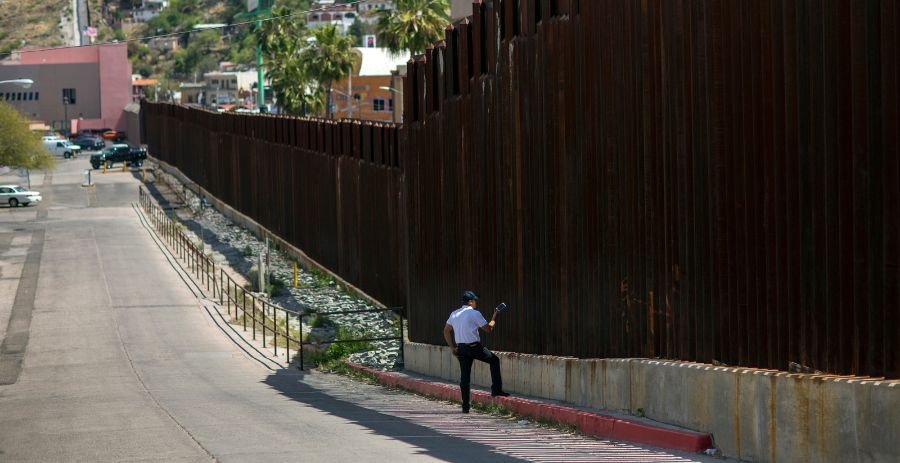2024 Election News
Lawmakers Push Court to Dismiss Challenge Against Border Security Measure

An attorney for Arizona state lawmakers argues that there is nothing legally wrong with asking voters to increase penalties for lethal fentanyl sales in the same ballot measure that seeks to let police arrest illegal border crossers. Beau Roysden, in his recent court filings, does not dispute that the provisions related to illegal immigration in Proposition 314 are not directly tied to sentencing someone who sells fentanyl resulting in another person’s death to a presumptive 10-year prison term.
Roysden contended before the Arizona Supreme Court that the legal test is whether all provisions are part of a larger plan to accomplish a specific purpose. According to him, the Legislature found that both issues contribute to an unsecure border, which justifies presenting them to voters as a single package. Earlier this month, Maricopa County Superior Court Judge Scott Minder ruled that all five provisions in HCR 2060 were closely related enough to comply with the Arizona Constitution.
The provisions include:
- Allowing state and local police to arrest individuals entering Arizona from Mexico outside of ports of entry.
- Permitting a judge to drop charges if the individual agrees to self-deport.
- Making it illegal to apply for public benefits using false documents.
- Criminalizing the use of false information or documents to evade normal employment verification processes.
- Enhancing sentences for anyone who knowingly sells “lethal fentanyl” causing another person’s death.
Opponents, such as Andrew Gaona representing Latino rights groups, argue that including the drug measure in a package focused on illegal immigration breaches the single-subject rule. They claim it includes penalties for fentanyl sales, even for U.S. citizens, which is unrelated to immigration status.
Jim Barton, an attorney for Living United for Change in Arizona, added that there is no connection between individuals caught crossing the border and those who may misuse documentation for purposes like acquiring a library card. Both Gaona and Barton argue that bundling these provisions violates the single-subject rule and lacks constitutional validity. This practice, known as “log rolling,” forces voters to accept or reject the measure in its entirety.
Judge Minder previously dismissed these challenges, leaving the final decision for the Supreme Court on the inclusion of Prop 314 in the November ballot. Roysden insists that the lawmakers’ designation of the measure as responses to border-related issues is sufficient to meet constitutional requirements.
The next step is for the justices to rule within the coming weeks, as counties need to start printing ballots around the third week of August. If passed, Prop 314 could still face further legal challenges, particularly concerning whether the state can take a role in border security, an area traditionally overseen by the federal government. Similar measures in other states, such as Texas’ SB 4, have been met with legal hurdles.
Regardless of the legal proceedings, opponents argue that Prop 314’s provisions could lead to racial profiling. However, these concerns are not relevant to whether the measure can appear on the ballot. The debate over the ballot measure and its consequences will likely continue in the public sphere.

















